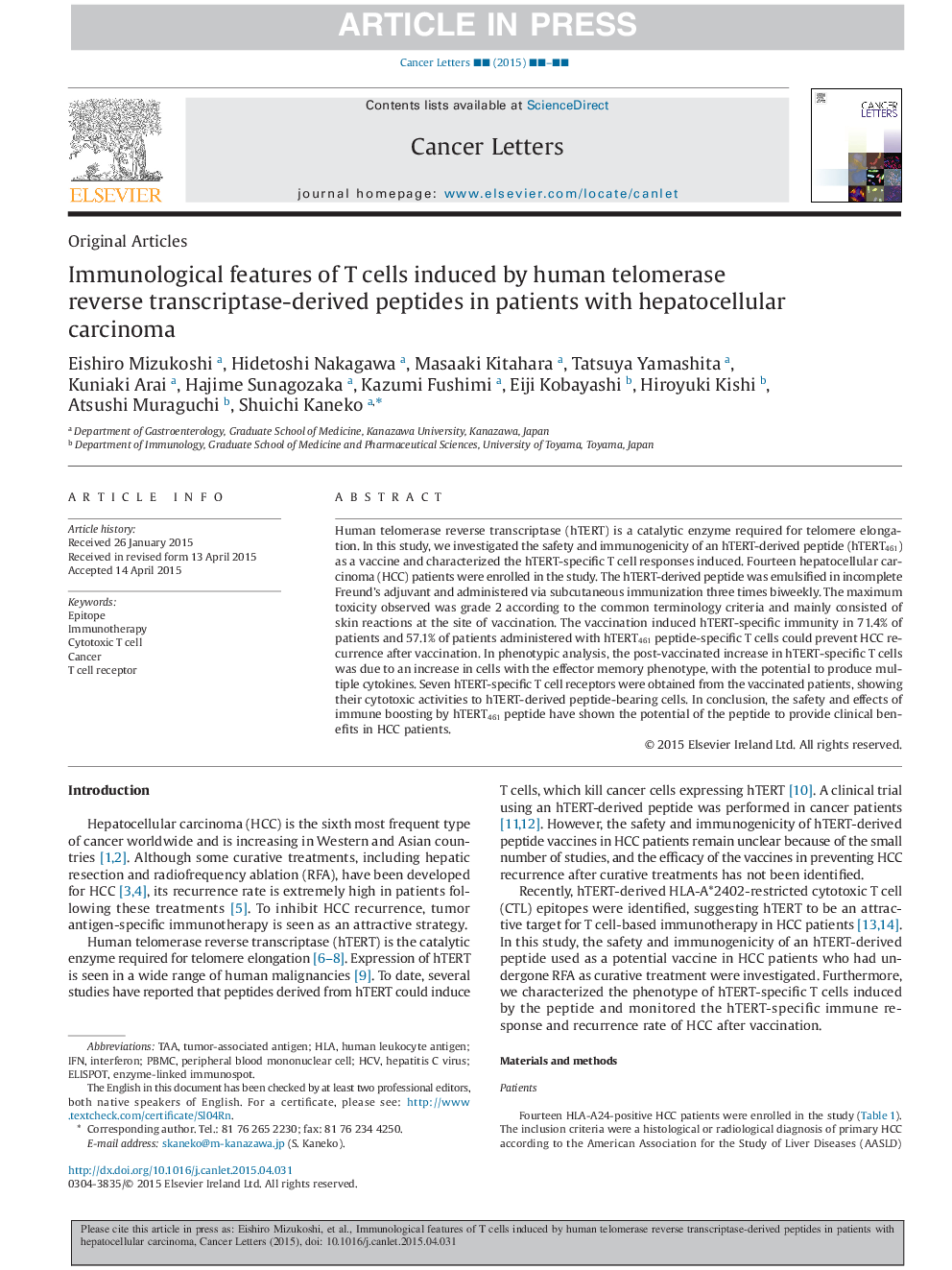| Article ID | Journal | Published Year | Pages | File Type |
|---|---|---|---|---|
| 10899522 | Cancer Letters | 2015 | 8 Pages |
Abstract
Human telomerase reverse transcriptase (hTERT) is a catalytic enzyme required for telomere elongation. In this study, we investigated the safety and immunogenicity of an hTERT-derived peptide (hTERT461) as a vaccine and characterized the hTERT-specific T cell responses induced. Fourteen hepatocellular carcinoma (HCC) patients were enrolled in the study. The hTERT-derived peptide was emulsified in incomplete Freund's adjuvant and administered via subcutaneous immunization three times biweekly. The maximum toxicity observed was grade 2 according to the common terminology criteria and mainly consisted of skin reactions at the site of vaccination. The vaccination induced hTERT-specific immunity in 71.4% of patients and 57.1% of patients administered with hTERT461 peptide-specific T cells could prevent HCC recurrence after vaccination. In phenotypic analysis, the post-vaccinated increase in hTERT-specific T cells was due to an increase in cells with the effector memory phenotype, with the potential to produce multiple cytokines. Seven hTERT-specific T cell receptors were obtained from the vaccinated patients, showing their cytotoxic activities to hTERT-derived peptide-bearing cells. In conclusion, the safety and effects of immune boosting by hTERT461 peptide have shown the potential of the peptide to provide clinical benefits in HCC patients.
Keywords
Related Topics
Life Sciences
Biochemistry, Genetics and Molecular Biology
Cancer Research
Authors
Eishiro Mizukoshi, Hidetoshi Nakagawa, Masaaki Kitahara, Tatsuya Yamashita, Kuniaki Arai, Hajime Sunagozaka, Kazumi Fushimi, Eiji Kobayashi, Hiroyuki Kishi, Atsushi Muraguchi, Shuichi Kaneko,
